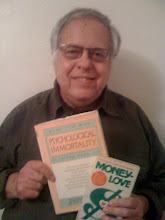It seems to me that there is a narrow but powerful movement in the U.S. right now to get people to vote their fears rather than their hopes. This is largely centered on, but not limited to, the right in terms of politics. The latest so-called document I received in this regard fear mongers on the subject of Muslims, citing the dangers of Muslim populations increasing in a nation:
> When Muslims approach 10% of the population, they tend to increase
> lawlessness as a means of complaint about their conditions. In Paris, we
> are already seeing car-burnings. Any non-Muslim action offends Islam and
> results in uprisings and threats, such as in Amsterdam, with opposition
> to Mohammed cartoons and films about Islam. Such tensions are seen
> daily, particularly in Muslim sections in:
>
> Guyana -- Muslim 10%
> India -- Muslim 13.4%
> Israel -- Muslim 16%
> Kenya -- Muslim 10%
> Russia -- Muslim 15%
>
> After reaching 20%, nations can expect hair-trigger rioting, jihad
> militia formations, sporadic killings, and the burnings of Christian
> churches and Jewish synagogues.
A well-crafted propaganda piece worthy of some of the stuff turned out by Joseph Goebbels for the Nazis warning of the threat of Jewish hordes taking over the world, it goes on and on. It even includes that old canard whereby we're supposed to be afraid because "the others" have a much higher birthrate than we, the "us" in "us" versus "them" do. It says if the Muslim birthrate continues at its current pace, they will become 50% of the population by the end of this century. So, I suppose we should begin quaking in our boots every time another Muslim baby is born, and really panicked about their numbers projected for 2099. Of course, these doomsayers want to have it both ways. They warn that increasing terrorist attacks will destroy the world long before 2099, which would mean we wouldn't need to be concerned about anyone's birthrate.
This propaganda piece goes on to cite as evidence of a Muslim takeover the recent appointment of two "devout Muslims" to Homeland Security posts, with comments about having foxes guard the chickens, etc.
This is not to say I don't think we shouldn't be vigilant about threats from extremist Muslims, or extremist fanatics of any religious persuasion. There is danger when any religious group considers all other religious groups as infidels. Labeling someone an "infidel" makes his or her life less valuable, less worth preserving, and quite naturally leads to violent acts against the perceived enemy. The teaching of hatred is much more prevalent, for instance, in the many thousands of madrassa schools in Pakistan. We are going to have to confront that issue sooner or later. But there are seeds right now in our own culture that could sprout into such intolerance and rabble-rousing.
Do I have a solution for all this? Not really, but I do have a suggestion for a first step. It is simply that all of us do something to fill in the huge gap in our knowledge of other peoples and other religions fostered by our inadequate educational system. Reading the Koran might be a logical start. Most people citing that holy book as responsible for terrorist acts haven't read it.
Or, you might read some of the works of the most popular poet in the world, the 13th Century Persian mystic Rumi. For example these words on the whole "us versus them" mentality:
"One went to the door of the Beloved and
knocked. A voice asked, 'Who is there?'
He answered, 'It is I.'The voice said, 'There is no room for Me and Thee.'
The door was shut.After a year of solitude and deprivation he returned and knocked.
A voice from within asked, 'Who is there?'
The man said, 'It is Thee.'
The door was opened for him."-- Jelaluddin Rumi
Rumi was a Sufi muslim, incidentally the same form of Islam practiced by Iman Rauf, whose proposed Muslim center near Ground Zero in New York stirred up such anti-Muslim controversy.
Finally, I'll quote one of my favorite lines from Rumi as a motto for voting our hopes instead of our fears.
"Ours is not a caravan of despair."
Jerry

No comments:
Post a Comment